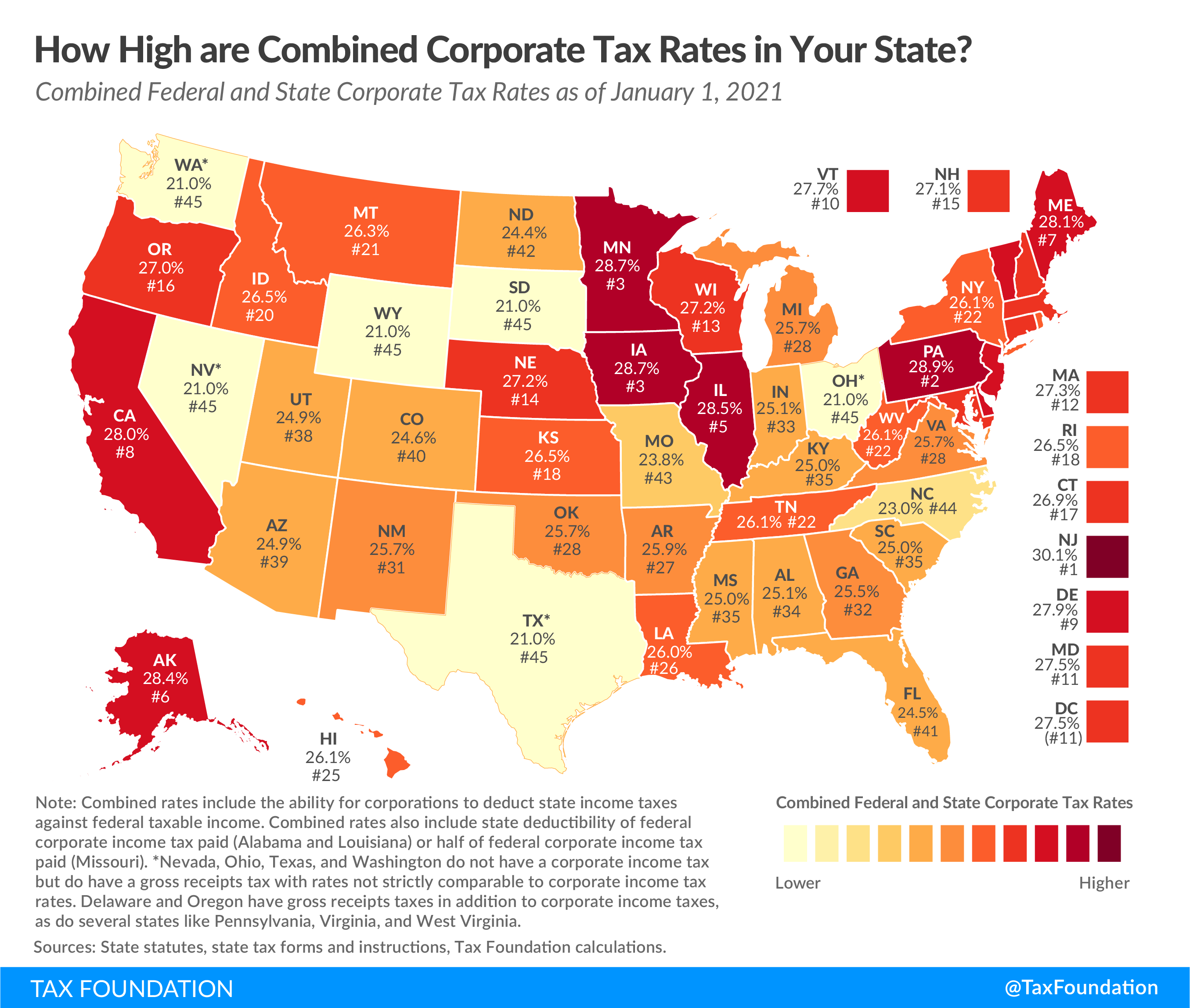Corporations in the United States pay federal corporate income taxes levied at a 21 percent rate. Many states also levy taxes on corporate income. Forty-four states and D.C. have corporate income taxes on the books, with top rates ranging from North Carolina’s single rate of 2.5 percent to a top marginal rate of 11.5 percent in New Jersey. Fourteen states levy graduated corporate income tax rates, while the remaining 30 states levy a flat rate on corporate income.
In Nevada, Ohio, Texas, and Washington, corporations are subject to gross receipts taxes in lieu of corporate income taxes. Delaware and Oregon impose a taxA tax is a mandatory payment or charge collected by local, state, and national governments from individuals or businesses to cover the costs of general government services, goods, and activities. on corporate income and a separate levy on gross receipts.
The state with the highest combined corporate income taxA corporate income tax (CIT) is levied by federal and state governments on business profits. Many companies are not subject to the CIT because they are taxed as pass-through businesses, with income reportable under the individual income tax. rate is New Jersey, with a combined rate of 30.1 percent. Corporations in Alaska, California, Illinois, Iowa, Maine, Minnesota, and Pennsylvania face combined corporate income tax rates at or above 28 percent. Six states—Ohio, Nevada, South Dakota, Texas, Washington, and Wyoming—face no state corporate income tax and only pay the federal tax rate of 21 percent.
Corporations may deduct state corporate income tax paid against federal taxable income, lowering the effective federal corporate income tax rate. For example, a corporation in Michigan may deduct tax paid at a 6 percent flat rate against the 21 percent federal corporate income tax, reducing its effective top federal rate to 19.74 percent and yielding a combined rate of 25.74 percent.
Additionally, three states allow corporations to deduct federal corporate income tax against some portion of state corporate income tax. Alabama and Louisiana allow full deductibility of federal corporate income tax liability against state liability, while Missouri permits a 50 percent deduction of federal corporate income tax liability. This lowers the effective corporate income tax rate faced by corporations in these states. Iowa previously permitted a 50 percent deduction for federal corporate income taxes, but repealed this provision while lowering its corporate tax rate from 12 percent to 9.8 percent in 2021.
As policymakers at the federal level debate proposals to increase the corporate income tax rate, it is important to consider state corporate income taxes and combined corporate income tax rates when evaluating the tax system’s impact on corporate profits, economic output, and worker wages.
Stay informed on the tax policies impacting you.
Subscribe to get insights from our trusted experts delivered straight to your inbox.
Subscribe